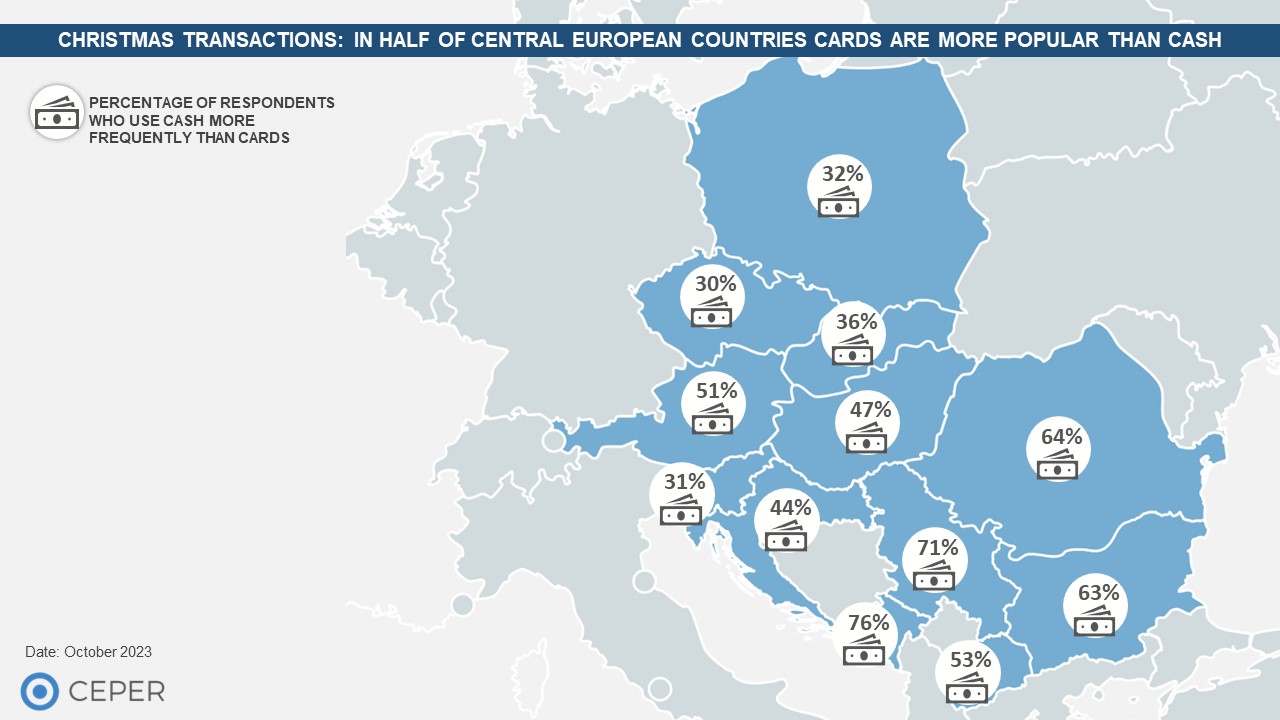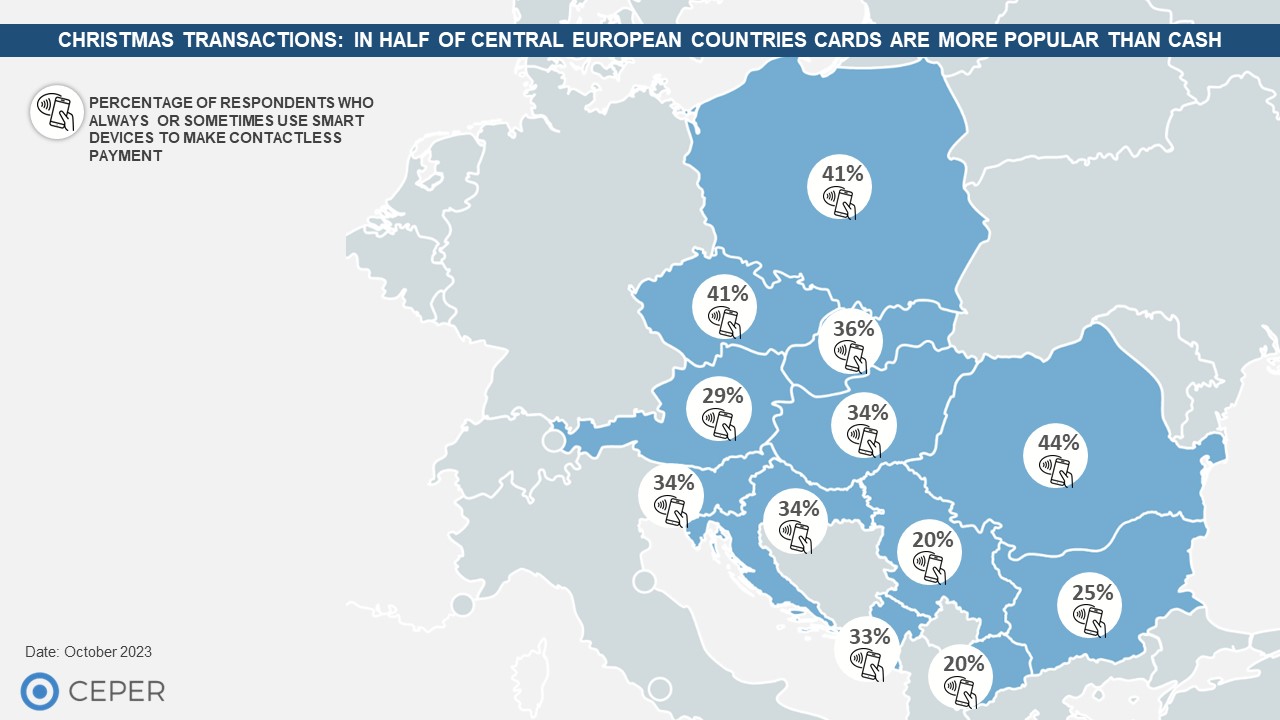Christmas Transactions: in half of Central European countries cards are more popular than cash
In CEPER's recent survey spanning 12 Central European countries, encompassing Austria to North Macedonia, an absolute majority owns credit or debit cards. However, in 6 of these countries over 50% of respondents make cash payments more frequently than card payments.
As the festive season descends upon Central Europe, the spotlight is not just on the search for perfect gifts but also on the intriguing payment preferences shaping the holiday shopping experience. CEPER's recent survey, involving 1,000 respondents from each of the 12 Central European countries, provides a captivating insight into the diverse ways residents manage their transactions in the run-up to Christmas. The survey inquired about respondents' possession of debit or credit cards, their preferred payment method between cash and cards, and whether they utilize smart devices (like smartphones or smartwatches) for contactless payments.
Debit and credit cards are widely present in the Central European region, with over 80% ownership reported in countries like Austria, Bulgaria, Croatia, Czechia, Poland, Slovakia, Hungary, and Slovenia. Astonishingly, Austria takes the lead with a staggering 93% card ownership. However, the real surprise lies in how many Central Europeans still prefer cash, especially in Austria, Bulgaria, Montenegro, North Macedonia, Romania, and Serbia, where over 50% favor cash over cards. As opposed to Austria, in Czechia where the card penetration rate was 90%, 69% of respondents preferred to use cards as a payment method over cash – thereby, Czechs are the most in favour of using card to make purchases.

While the ownership of cutting-edge smart devices is on the rise, their integration into the payment landscape appears less widespread. Surprisingly, no less than 55% of respondents said that they are never using smart gadgets to make contactless payments. In Austria, Bulgaria, North Macedonia, and Serbia no less than 70% of respondents denied ever using smart payment methods. In Croatia, Hungary Montenegro, Slovakia and Slovenia between 60-69%, while in Czechia, Poland and Romania 50-55% of respondents claimed never to use gadgets for payments. The highest penetration of smart gadget usage for payments was observed in Czechia, Poland and Romania. In Romania 44 while in Czechia and Poland 41% of respondents claimed that at least sometimes they use electronic devices for making payments.

In the midst of this payment evolution, some Central Europeans remain loyal to traditional cash transactions. In countries like Hungary, Bulgaria, Croatia, Montenegro, North Macedonia, Romania, and Serbia, over 20% of respondents insist on always using cash. Notably, Montenegro takes the lead with a striking 51% of respondents preferring the tangible reliability of cash. In other words, while new payment methods are widely available for Central Europeans, they are keen on sticking to cash. Given the relatively low popularity of cutting-edge gadgets for making payments, some might even consider purchasing them as a creative, out of ordinary last-minute Christmas gifts to their loved ones!
Methodology
The opinion-poll survey was carried out in 12 countries in the Central European region: Austria, Bulgaria, Croatia, Czech Republic, Hungary, Romania, Serbia, Slovakia, Slovenia, North Macedonia, Montenegro and Poland. The data were collected between 09 October and 26 October 2023 . The survey was conducted by telephone (in person in Serbia and Montenegro) with 1 000 respondents per country. The sample per country is representative by gender, age and type of settlement.
About us
CEPER is the brand of CEPER Group GmbH. The CEPER acronym abbreviates Central European Perspectives. CEPER's area of expertise is Central European affairs, the company offers media monitoring, market research and opinion polls from the region to its clients.